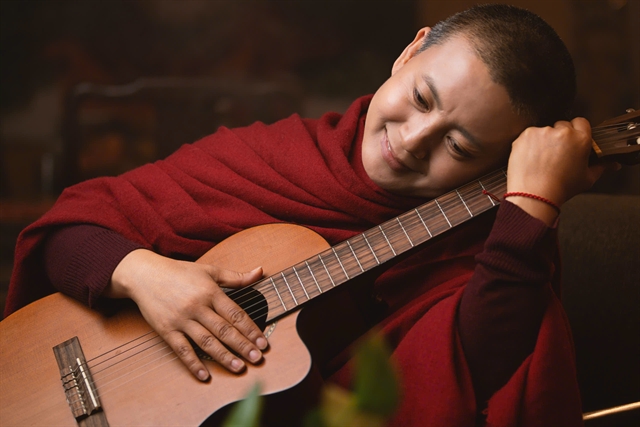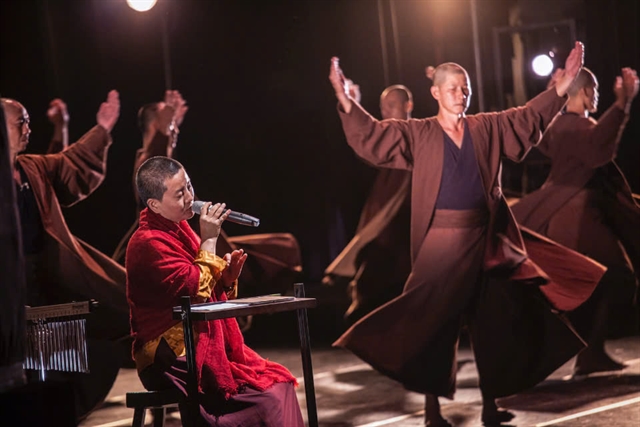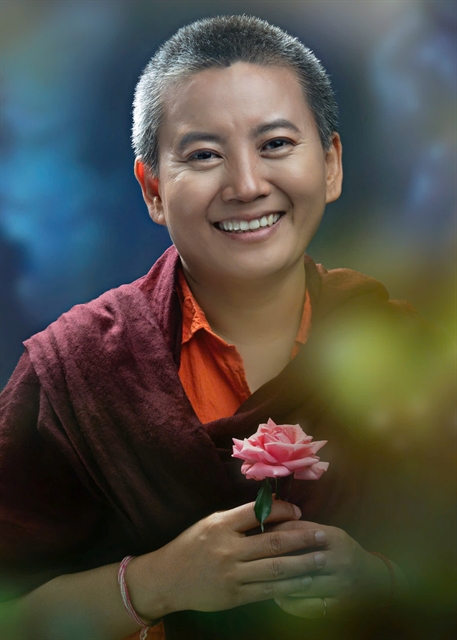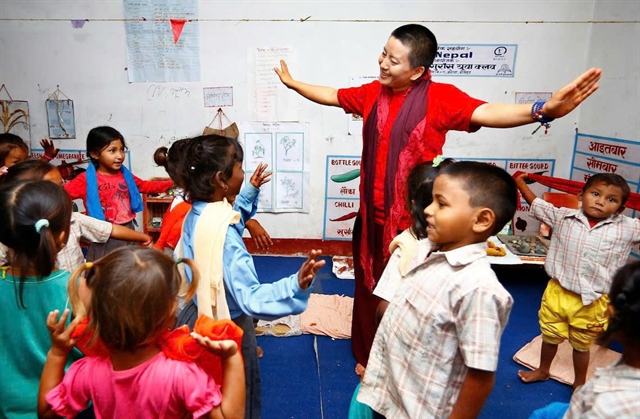Weather:
- Ha Noi 28oC
- Da Nang 29oC
- Ho Chi Minh 34oC
Ani Choying Drolma, 54, a renowned Nepalese Buddhist nun and singer, was born in Kathmandu, Nepal. At the age of 13, she left home and got ordained as a nun to escape domestic violence. She has released 16 albums and performed in over 30 countries, bringing Vajrayana Buddhist music to a global audience. She served as Nepal’s first National Goodwill Ambassador for UNICEF between 2014 and 2019. Now she is the Goodwill Ambassador for WWF in Nepal. Việt Nam News reporter Lê Hương chats with her ahead of her first concerts in HCM City on September 6 and 7.

Inner Sanctum: How did music come into your life during your spiritual training, and what moment has been the most meaningful milestone in that journey?
From a very young age, I loved singing and dancing. But when I entered the monastery and became a nun, music took on a different meaning. In our ritual ceremonies and prayers, we always use melodies, not as entertainment, like pop or rock music, but as part of sacred practice.
I had to learn various instruments and ancient melodies used in these rituals. I was always excited to learn, and I tried to sing the chants as beautifully as I could. My teachers and senior nuns appreciated that.

Then, one day, an American musician heard me singing at the monastery. He proposed a collaboration, combining my chants with his electronic guitar and other instruments. I agreed, and the album we created became internationally successful. That was a turning point.
Inner Sanctum: Your music has touched millions worldwide. What allows meditative chanting to transcend language barriers so profoundly?
At the core, we are all human beings. We all wish for happiness and want to avoid suffering. That is a universal truth.
Though we’re often trained to believe happiness comes from external things, true happiness comes from within. As the Buddha taught, peace and joy arise from inside out, not outside in.
My music is born from meditation. It helps bring my mind to its natural, pure state, a state filled with compassion. That vibration reaches others. I believe that’s why the chanting connects so deeply with people, beyond language or culture.
Inner Sanctum: How do you balance your life as a Buddhist nun with your public role as a beloved artist?
Being a Buddhist doesn’t mean staying in a temple all the time. It’s a way of life, a way of living with the right attitude and motivation.
As long as I'm guided by sincere intention and awareness, I feel balanced. I don’t claim to be perfect, but I try my best. Everything I do, music, service, or travel, I try to ground it in compassion and Dharma.
Of course, challenges exist. But I find challenges inspiring. They motivate me to keep living meaningfully. Suffering, in that way, becomes a driving force rather than a burden.
Inner Sanctum: To you, is music a means of conveying Buddhist teaching, or an extension of your meditation practice? What role does music play in healing the human spirit today?
Music is a tool, a vehicle I use. What matters most is the aspiration and intention behind it.
Music has an inherent ability to soothe a disturbed mind. That’s why Buddhas and Bodhisattvas often used melodious voices in their teachings and rituals. It’s said their speech was music in itself, filled with compassion.
Religious traditions around the world use music, from church choirs and Hindu bhajans to morning prayers in mosques. Similarly, in Buddhism, we chant and use music as part of spiritual practice. The expressions may differ, but the essence is the same.

Inner Sanctum: What are your impressions of the growth of meditation and Buddhism in Việt Nam, especially in today’s modern world?
Việt Nam is truly a country where the Buddha’s teachings have flourished historically, presently and, I believe, in the future as well.
Today, even science acknowledges the benefits of meditation, for physical health, mental well-being, and overall quality of life. It's not just about being Buddhist; it's about living consciously and meaningfully.
I don’t believe the Buddha came to promote a religion. He came to help beings awaken and free themselves from suffering. That’s a universal message.
Inner Sanctum: If you could share only one message with the people of Việt Nam, what would it be?
In today’s modern world, filled with information, technology and AI, it’s easy to get distracted. But don’t lose touch with your inner qualities, the beauty and strength that already exist within you.
No knowledge is more powerful than the wisdom that helps you free yourself from suffering. So, I sincerely encourage the practice of meditation. It is the path to true peace.
One of the reasons I founded a school and girls' home is because of my own experience. I wanted to study and continue my education, but due to difficult circumstances, I couldn’t. Instead, I became a nun. The education I received in the monastery became deeply meaningful and transformative for me.
Still, I recognised that many girls in Nepal are deprived of basic education. When I realised I had the means to help, I felt a strong responsibility to act. So I started a free boarding school for girls – to give them not only academic knowledge, but also the motivation and values to help themselves and others. That has become one of my most important social commitments.
At the heart of all my work, whether music, service or education, is a desire to live meaningfully and be of benefit to others. That gives me true happiness.

And if I had to choose one guiding principle, it would be this: “Instead of cursing the darkness, light a candle”.
We spend too much time blaming others. But if something isn’t right, we must take responsibility and be part of the solution ourselves. VNS

